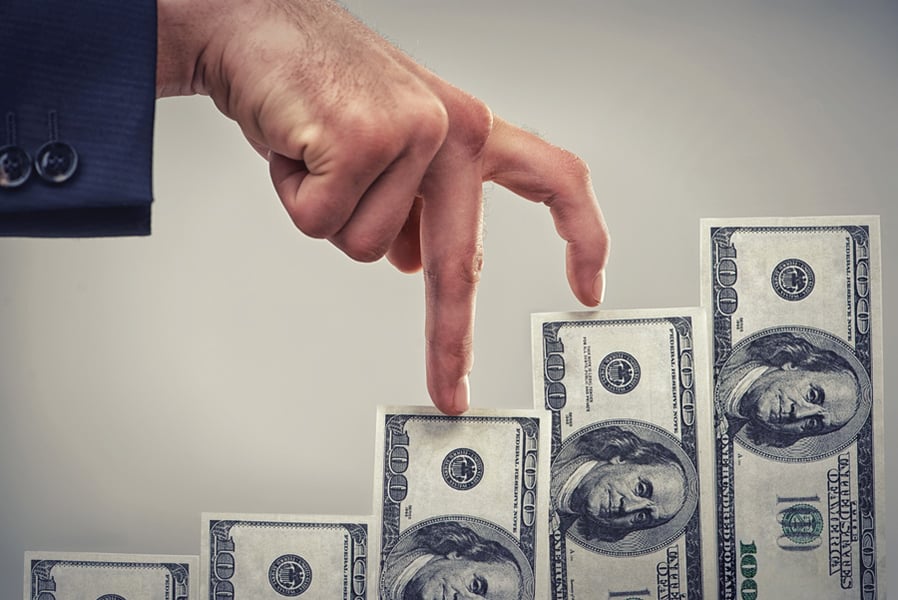

As the idea of a $15 federal minimum wage gains momentum inside the Biden administration’s proposed $1.9 trillion stimulus package, the financial planning community is starting to wrestle with the broader economic implications of doubling the hourly wage for entry level workers.
“Ultimately, all a $15 minimum wage does is drive down the gap between paying people and the cost of automation, and at the end of the day most jobs that pay less than $15 an hour can be done better by machines,” said Leibel Sternbach, founder of the financial advisory firm Yields4U.
Contrary to proponents who claim a dramatically higher minimum wage will move people out of poverty, Sternbach believes low-wage earners will be hurt the most.
“I don’t think increasing wages will decrease poverty, because it just concentrates the wealth among the poor, making some people poorer than others,” he said. “A better way to address the wage gap is by increasing training and earning potential for lower wage workers rather than giving a few of them a living wage at the expense of the rest.”
From a payroll perspective, a profession like financial services is generally not expected to be impacted by a minimum wage hike as it is proposed to increase over the next few years, but the economic fallout on goods and services would be far reaching and potentially irreversible.
Similar to the way the Covid-19 pandemic forced businesses to adopt new technologies to stay competitive, Sternbach believes a higher minimum wage will speed up other technological changes. “We are already heading toward a lower cost of automation and a higher cost of labor, and the minimum wage hike just accelerates that,” he said.
Thomas Balcom, founder of 1650 Wealth Management, agrees that doubling the minimum wage just rolls out the welcome mat to more automation, which ultimately reduces the number of entry-level jobs.
“If you've been to a McDonalds recently, you've noticed the kiosks to place your order, and with the raising of the minimum wage, you'll see more and more of this in the future,” he said. “The jobs will be replaced by kiosks and the costs will be passed along to the customers.”
Jim Iuoria, director at TJM Investments, has a hard time seeing any upside to a policy that the Congressional Budget Office predicts will cost more than 1.5 million low-wage jobs.
“I looked at it from a macroeconomic perspective and as a restauranter, and I think it’s idiotic,” he said. “The only defense I can think of is that it sounds good by politicians who want to act like champions of the working man.”
But longer-term concerns over increased unemployment and inflating the costs of products and services across the board are brushed aside by those who believe markets and businesses can adapt to such government-imposed policies.
“The private sector is already taking the lead on raising the minimum wage,” said Larry Luxenberg, financial adviser at Lexington Avenue Capital Management. He cites examples of mega employers like Amazon and Walmart “already paying the majority of their workers above minimum wage and continuing to raise wages,” as examples of the market forcing wages higher.
“If an individual company has to do it on its own it can be hard, but if everyone has to do it, it lessons the impact on any one employer,” Luxenberg said.
David Jackson, a financial adviser at Modern Horizons Wealth Advisors, favors a higher minimum wage to reduce the “corporate welfare” of offering lower earners earned income tax credits that are ultimately funded by taxpayers.
“I think it’s a good thing for society, but it’s hard to say what it will do for the economy,” he said. “I’ve never seen an increase in the minimum wage really affect the stock market.”
Jackson acknowledges the collateral damage on some businesses that will close and some workers who will lose their jobs as a result but believes there will also be an economic boost.
“The economics of it helps because you give someone on minimum wage more money, they will spend it,” he said.
While some focus on the net positives, Dennis Nolte, vice president at Seacoast Investment Services, said it is dangerous to just gloss over the negative effects of doubling the federal minimum wage over a four-year period.
“I suppose it’s a positive in the short run except when you look at what goes up with it, like the price of gas and food,” he said. “It will cause more small business people to cut back by laying off employees, and that’s not a good thing, because I’m not sure where those unemployed folks go.”
In terms of how something seemingly grounded in economics and math can produce such polarizing perspectives, Nolte said it all boils down to political theater.
“Of course, the politicians understand it and, realizing half the public doesn’t pay taxes, they’re playing to their base,” he said. “It goes contrary to how economics works, but the politicians are playing to a certain base, and they never mention that 20% of you might lose your jobs.”

From outstanding individuals to innovative organizations, find out who made the final shortlist for top honors at the IN awards, now in its second year.

Cresset's Susie Cranston is expecting an economic recession, but says her $65 billion RIA sees "great opportunity" to keep investing in a down market.

“There’s a big pull to alternative investments right now because of volatility of the stock market,” Kevin Gannon, CEO of Robert A. Stanger & Co., said.

Sellers shift focus: It's not about succession anymore.

Platform being adopted by independent-minded advisors who see insurance as a core pillar of their business.
RIAs face rising regulatory pressure in 2025. Forward-looking firms are responding with embedded technology, not more paperwork.
As inheritances are set to reshape client portfolios and next-gen heirs demand digital-first experiences, firms are retooling their wealth tech stacks and succession models in real time.
